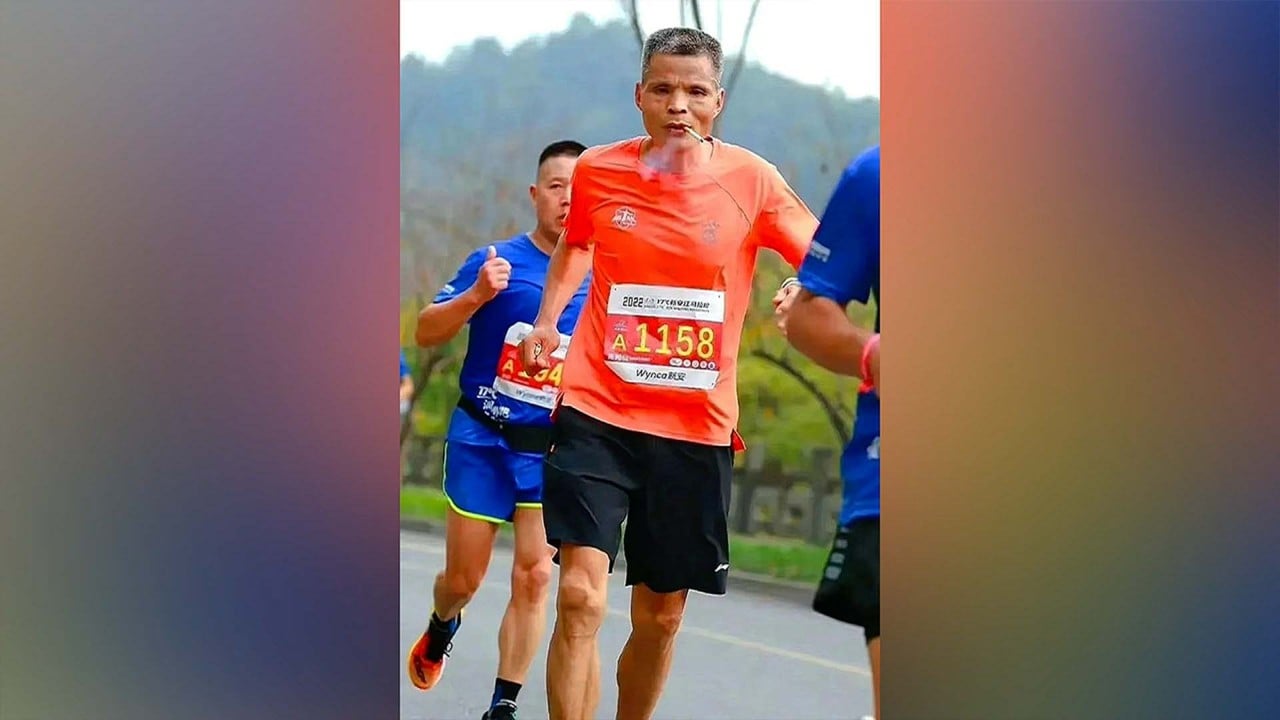
Budget 2023-24: smokers hit with HK$12 hike a pack but Hong Kong still trails others in region in taxing tobacco
- Government’s 31 per cent tax increase, effective immediately, pushes cost of pack of cigarettes to HK$73.75
- Authorities hope to take smoking rate down to 7.8 per cent by 2025 with new measure, government source says
Smokers in Hong Kong must pay HK$12 (US$1.53) more for a pack of cigarettes after the finance chief upped the tax on tobacco on Wednesday in a move designed to cut the number of smokers by 100,000 in the next three years and also boost the government’s coffers.
The 31 per cent tax hike pushed the average cost of a pack of cigarettes to HK$73.75, and some convenience stores raised the retail price immediately.
“Increasing tobacco duty is recognised internationally as the most effective means to reduce tobacco use,” Financial Secretary Paul Chan Mo-po said in his budget speech. “A rise in cigarette price will increase the incentive of smokers to reduce or quit smoking.”

The minister sought to assure the public the government had carefully considered the impact of the higher price on less well-off smokers.
“With inflation and other factors, [previous tax rates’] effectiveness in encouraging the people to smoke less or quit smoking has faded out gradually, so we are increasing by 30 per cent this time,” he said at a press conference.
The government estimated the price increase would bring in an extra HK$1 billion a year in revenue.
Making smoking more expensive was part of the government’s public health measures unveiled in the budget.
Chan also announced an additional HK$500 million in funding for the Chinese Medicine Development Fund for training and research, and more than HK$3 billion for two schemes, including the care of patients with chronic diseases under the new primary healthcare blueprint.
‘Happy Hong Kong’: 6 takeaways from Paul Chan’s budget 2023-24
The prevalence of smoking has dropped steadily over the decades, going from 23.3 per cent of the population in 1982 to 9.5 per cent at present.
With the new measure, authorities hoped to bring the figure down to 7.8 per cent by 2025, or reduce the number of smokers from about 580,000 to 480,000, a government source said.
Taxes account for 68 per cent of the total price of a pack of cigarettes after the increase, up from 62 per cent. But the proportion is still lower than the 75 per cent rate recommended by the World Health Organization (WHO).
By comparison, tax makes up 67.1 per cent of the price of a pack of cigarettes in Singapore, 73.9 per cent in Australia and 82 per cent in New Zealand, according to figures from 2020.
Asked why the authorities were not putting up the rate to 75 per cent, the government insider said the increase was decided after “considering all factors”, including protection of public health.
The source said that an increase in tobacco tax had led to more inquiries to the Department of Health’s smoking cessation hotline in the past. After the tobacco tax was raised by 50 per cent in 2009, calls to the hotline rose by 257 per cent.
The insider said the government would submit a consultation document to the Legislative Council in the first half of this year to introduce more tobacco control strategies.
Several convenience stores in Causeway Bay put up notices on Wednesday to alert customers to the cigarette price increase. A shopkeeper told the Post many customers were caught off guard by the news.
“Many [customers] did not expect the government to increase the tobacco tax as the economy is still quite weak,” he said.
Yeung Chi, a 51-year-old man who works in the transport industry, said he was surprised by the increase and would consider quitting or smoking less.
‘Two-thirds of Hong Kong smokers to cut back on habit if cigarette prices rise’
“It’s quite expensive for me as I buy at least four to five packs of cigarettes every week,” he said. “I really have to quit if they further raise the price.”
But the owner of a newspaper stall on Percival Street, who gave her surname only as Yeung, said she doubted the change would have much of an impact on her businesses.
“The business may fluctuate for a short period of time after the policy change, but in the long term, those who don’t quit still need to buy cigarettes,” she said.
The Council on Smoking and Health and the nursing school at the University of Hong Kong (HKU) welcomed the latest move.
The school appealed to Chan to make it policy to have an annual increase in tobacco tax and to lower the affordability of tobacco products.
HKU Professor Sophia Chan Siu-chee, the city’s former health minister, said the tax increase was a vital step towards a tobacco endgame, or a decline in the smoking rate to 5 per cent of the population.



